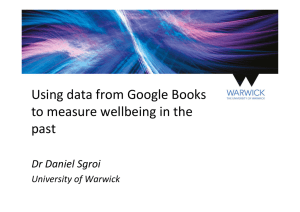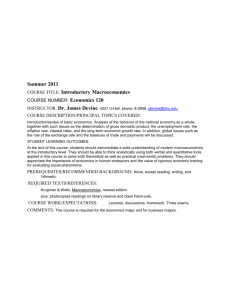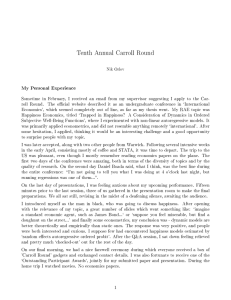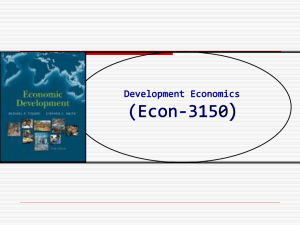How happy were your great grandparents? Using data from Google Books to
advertisement
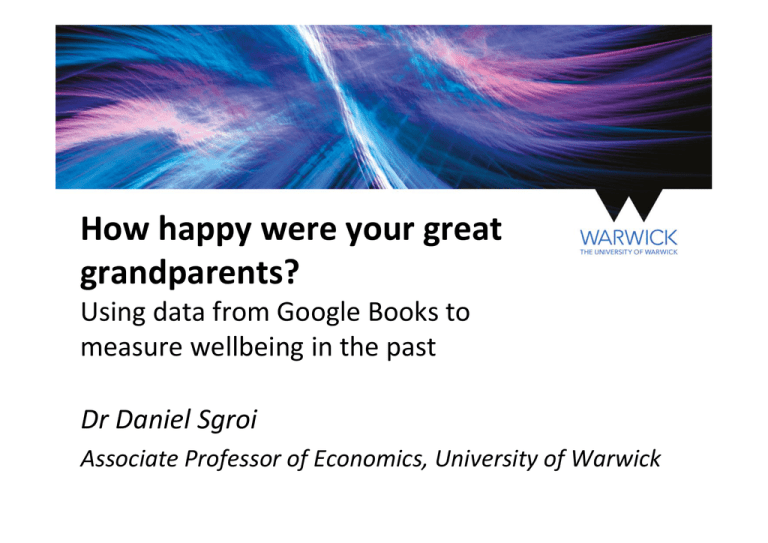
How happy were your great grandparents? Using data from Google Books to measure wellbeing in the past Dr Daniel Sgroi Associate Professor of Economics, University of Warwick Economics & Psychology • Joint work with Eugenio Proto (behavioural economist) and Thomas Hills (psychologist). • “Happiness Economics” • “Behavioural Macroeconomics” What is Happiness Economics? • What is utility? Not just money – concern for others, leisure (fun!), health, etc. • The birth of Happiness Economics: The Easterlin Paradox • A threat or a complement to conventional macroeconomics? • The macroeconomic objective function National Income • National Income Accounting and the birth of macroeconometrics • Measuring GPD in the past: The Maddison Project (from 1AD!) • The limitations of the super-long run Measuring Happiness • Do we really need historical data? Why? (UN, OECD, national governments…) • Now is fine: we can just ask people! • But the past, surely impossible? How can we “go back in time” to ask our great grandparents how happy they are? Google Books! • Big Data: Ngrams! (Viewer – suggestions?) • Sentiment (“valence”) and psychology • Building the HPS index Google Books! Valence correlates heavily with life satisfaction 19722009: Rolling back through time… • For the UK, USA, Germany, France, Italy, Spain • From 1776 to 2009 The HPS Index: UK The HPS Index: France So now what? • Scale, direction, comparisons… • At the margin what matters more for happiness (health vs money, wars vs natural disasters, etc.) • But avoid super-long run comparisons (for now…) Next steps • Now we have the method, so much more we can do: text-analysis, sentiment and finance, language and identity (war), etc • Refining the method (how language evolves) Thank You!
